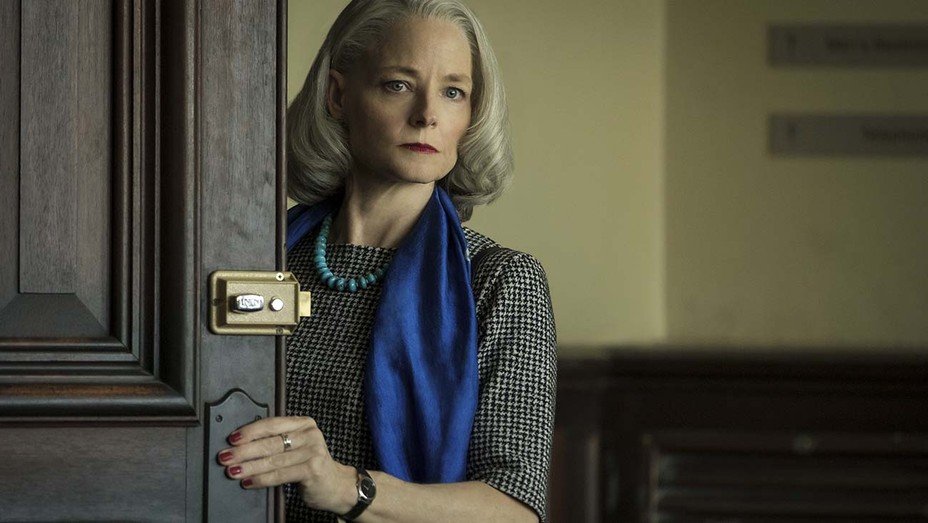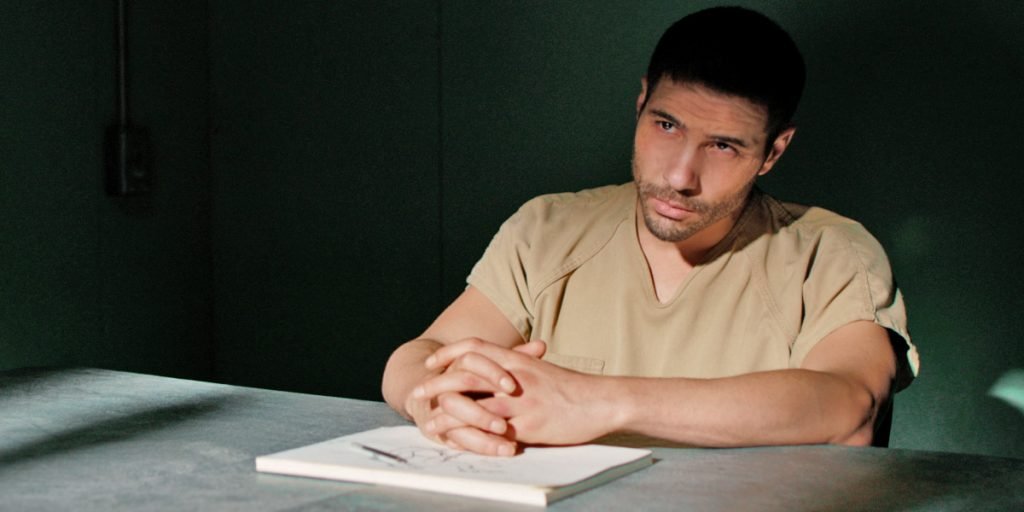The Mauritanian sheds a light on a sinister side of U.S. history with stirring storytelling and powerful performances from Tahar Rahim and Jodie Foster.
In 2002, the Guantanamo Bay detention camp was established on the coast of Guantánamo Bay in Cuba by the George W. Bush Administration as a response to the terrorist attacks that took place in New York City on 9/11. According to Secretary of Defense Donald Rumsfeld, the camp was created “to detain extraordinarily dangerous people, to interrogate detainees in an optimal setting, and to prosecute detainees for war crimes” – all seemingly admirable aims that sadly proved to be far from the truth.
Within only a few years, it was revealed that not only were certain prisoners being detained indefinitely without trial, but many were additionally being tortured on a regular basis in an effort to acquire “information on terrorist organizations” – information that never materialized. Though former President Barack Obama intended to close the camp during his presidency, he only succeeded in decreasing the number of detainees, and Guantanamo Bay remains open to this day.
This brief history lesson serves as essential background knowledge for Kevin McDonald’s (The Last King of Scotland, State of Play) The Mauritanian, a story set in that mortifying military prison – the one deemed “a threat to human rights” by Amnesty International – and primarily centered on the plight of one Mohamedou Ould Salahi (Tahar Rahim, of A Prophet and Mary Magdalene). Salahi’s struggle is a troubling true-life tragedy; in 2002, the Mauritanian was accused of being one of the architects of the 9/11 attacks and subsequently sent to Guantanamo Bay, where he remained – without ever being officially charged with a crime – until October 17, 2016.
Essential to Salahi’s release was the work of lawyer Nancy Hollander (Jodie Foster, of The Silence of the Lambs and Taxi Driver), a diligent defense attorney who, along with junior associate and translator Teri Duncan (Shailene Woodley, of Divergent and The Fault in Our Stars), discovered the deceit of the detention camp and warded off intervention from Lt. Colonel Stuart Coach (Benedict Cumberbatch, of Doctor Strange and The Imitation Game), a military prosecutor with a personal connection to Salahi’s case. Over time, all three individuals would realize that the brutality of Guantanamo Bay went above and beyond what anyone had ever imagined, spotlighting structural corruption and aiding our awareness of the human rights atrocities being committed day in and day out.

Though 2019’s The Report – a political procedural about the Senate Intelligence Committee’s investigation into the CIA’s use of torture post-9/11 – told a similar tale just over a year ago, The Mauritanian circumvents comparisons to this timely thriller by prioritizing a more personal narrative and explicitly adapting Salahi’s own memoir, Guantanamo Diary, putting the prisoner’s perspective front and center. The government has its fair share of representation in this story as well in the form of Foster’s Hollander and Cumberbatch’s Coach, but, at the end of the day, this is Rahim’s Salahi’s record of experiences first and foremost, and The Mauritanian benefits greatly from the authenticity it incorporates from his own accounts of his time at Guantanamo Bay.
It’s one thing to simply be told of the terror one endures whilst imprisoned at Guantanamo Bay, but it’s another thing entirely to actually witness this wickedness firsthand, and The Mauritanian places us firmly in Salahi’s shoes as he’s subject to some of the most horrific human rights violations imaginable. Though it may not be exploitative, McDonald’s direction is determined to capture the full scale of the Bay’s savageness, never sugarcoating their torture tactics. And, throughout this all, the barbarity is made all the more unbearable whenever we remember that the government has no “good” reason for keeping Salahi in captivity; instead, he was simply a victim of the Bush Administration’s attempts to apprehend any and all “high-value” al-Qaeda operatives in the Middle East, sometimes going off of nothing more than a phone call an individual once made to another suspicious subject or even a mere rumor. Quite frankly, the insolence is just infuriating.
From the first frame to the last, Rahim brings a raw realism to his role as Salahi, tapping in to his inner turmoil and making his (physical and mental) pain palpably perceptible to the audience. Before we learn of the concrete truth regarding his confinement, we – and Hollander and Duncan – are fed countless lies about Salahi’s character, and it’s to Rahim’s credit that we nearly never doubt his innocence regardless. Because Rahim believes in Salahi’s sincerity, we too blindly accept his testimonies as truth without any question whatsoever, and the way he effortlessly elicits our emotional investment with a passionate plea or even just a joyless expression is nothing short of extraordinary. Simply put, The Mauritanian is only as strong as it is because of how seriously Rahim commits to his inhabitation of the title character.
Even while keeping the focal point of the movie predominantly on Salahi’s strife, The Mauritanian still finds time to fully flesh out its stacked supporting cast as well, with Foster, Woodley, and Cumberbatch all turning in equally three-dimensional work. Foster – in her first film role since 2018’s Hotel Artemis – is a formidable firecracker as the headstrong Hollander, never straying from her search for the genuine governmental cover-ups at Guantanamo Bay or her pursuit to prove Salahi’s innocence. She isn’t without her moments of weakness, but, for the most part, she never falters in her faith in Salahi, and her intense care for the case is nothing short of commendable (which Foster plays perfectly). Woodley has a bit less to do, but her inability to conceal her emotions contrasts with Foster’s Hollander’s coldness in compelling fashion, making for a dynamite dynamic that demands our attention at all times.
Conversely, Cumberbatch is actually gifted with quite a substantial subplot – which is especially significant given how cliché his character could have been – and he certainly makes the most of his opportunity to compassionately convey Coach’s internal tug-of-war between his morals and his obligation to his work. As a man who lost a best friend in 9/11, he couldn’t possibly be more dedicated to taking down any and all further terroristic threats to the United States, but when he realizes the full extent of the injustice occurring at Guantanamo Bay, can he possibly fall in line and turn a blind eye? Cumberbatch charts Coach’s change in opinion on Salahi’s case rather convincingly, and he assures that Coach’s development is perceived as plausible the whole way through, never indulging in inflated and/or inauthentic acting of any kind.
When all is said and done, audiences may find some relief in The Mauritanian’s rewarding resolution, but as soon as that satisfaction subsides, many will be left with a lingering distaste for the depravity of Guantanamo Bay, and that couldn’t possibly be a higher compliment to the spellbinding storytelling on display here. The Mauritanian’s primary goal may be to educate its viewers on the evils of this (still-functioning) military prison, but, at the same time, it succeeds at simultaneously igniting an ire in the individuals exposed to these infringements on human rights and tempting them to take action on their own time – portraying political art at its most powerful.
The Mauritanian had its UK Premiere at the Glasgow Film Festival on February 25th, 2021. The film will be available to own on Digital, Blu-Ray and DVD from May 13th.

